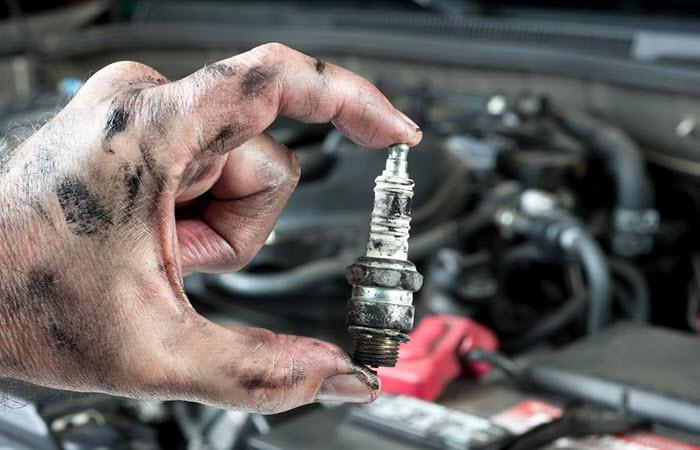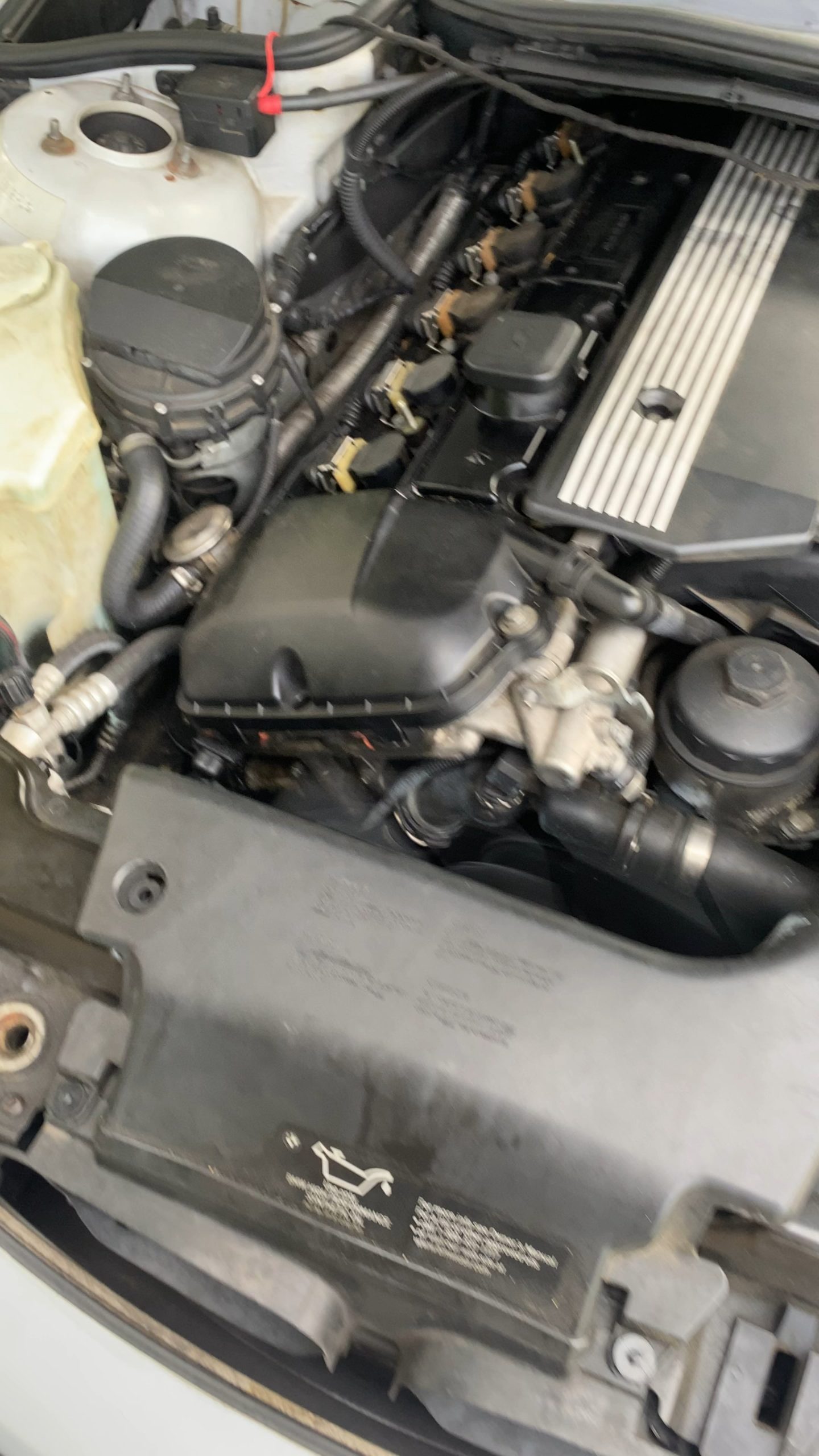Can a Bad Coil Pack Cause a Ticking Noise
A bad coil pack can sometimes manifest as a ticking noise, particularly when it causes misfires. This noise is a sign of erratic ignition in the engine.
Understanding vehicle maintenance helps to navigate common mechanical issues, such as identifying strange sounds from your car. A ticking noise emerging from under the hood can be alarming. Engine components, including coil packs, play a crucial role in the smooth running of a car’s engine.
Coil packs, part of the ignition system, are vital for converting energy into the high-voltage spark that fires the engine’s spark plugs. When they fail, the consequences can range from engine misfires to reduced fuel efficiency and power loss. A ticking noise might suggest that a coil pack isn’t operating as intended, which could be due to an electrical fault or wear and tear. Car owners should address such issues promptly, as neglect can lead to more severe damage and costly repairs.

Credit: www.reddit.com
Identifying Engine Noises
Understanding what your engine is telling you can feel like learning a new language. Identifying Engine Noises is vital. It helps prevent small problems from growing.
Common Causes Of Ticking Noises
A ticking noise from your engine can be alarming. It often suggests a problem.
- Low engine oil level can cause ticking. It’s the first thing to check.
- Worn out components like lifters or pushrods can also make this noise. They need proper lubrication.
- A bad coil pack might not be the culprit directly. But it can lead to misfires. This results in a ticking or popping sound.
- Loose parts in your engine compartment can mimic a ticking sound. Bolts or brackets that are not tight could be the cause.
Differentiating Between Sounds
Distinguishing between engine sounds is key to proper diagnosis. Pinpointing the sound’s nature helps a lot.
| Sound | Possible Cause |
|---|---|
| Continuous Ticking | Valve train issues, low oil |
| Knocking | Bottom engine problems, worn bearings |
| Whining | Belts or pulleys, possible tensioner issues |
Using a mechanic’s stethoscope can pinpoint the noise. Listen closely to the front of the engine where the coil pack is. If the ticking syncs with your engine RPMs, it might not be the coil pack.

Credit: m.youtube.com
Coil Packs In Modern Engines
Coil packs are critical in today’s engines. They ignite the air-fuel mixture. This sparks your car to life. Without these, engines won’t run smoothly, or at all.
Function Of Coil Packs
A coil pack is an electronic piece. It sends volts to spark plugs. This ignites the fuel. Each pack has one coil per plug. This direct connection boosts efficiency.
- Enhances fuel economy
- Improves engine performance
- Reduces emissions
Signs Of A Failing Coil Pack
Look out for these signs:
| Sign | Meaning |
|---|---|
| Engine Misfire | Engine stutters or stumbles. |
| Poor Acceleration | Car feels sluggish. |
| Ticking Noise | Could mean coil issues. |
| Check Engine Light | Alerts to engine problems. |
Ticking noise sometimes points to a bad coil pack. This sound can come from an engine part called a lifter. A misfiring coil can make a lifter tick. Also, it may be a sign of sparks escaping. This happens when coil insulation wears out.
Connection Between Coil Packs And Engine Sounds
Understanding the Role of Coil Packs in Your Engine’s Health
Coil packs play a crucial role in a car’s ignition system. They spark the engine to life. A faulty coil pack can lead to various issues, including unusual engine noises.
Can Coil Packs Cause A Ticking Noise?
Coil packs indeed influence engine sounds. A bad coil pack may cause a ticking noise. This sound often results from erratic spark generation. It disrupts the typical rhythm of the engine.
How Engine Misfires Affect Noise
When an engine misfires, it fails to combust properly. Misfires due to coil pack issues generate a distinctive sound. The sound is like clicking or ticking. It signals a need for prompt attention.
- Signs of coil pack troubles:
- Engine light activation
- Power loss during acceleration
- Uneven engine idling
- Fuel efficiency drop
Timely detection and repair are key. It prevents further damage. Always consult an expert if such noise occurs. Regular checkups help maintain engine performance.
Diagnosing The Ticking Noise
Diagnosing the ticking noise in a vehicle can feel like a daunting task. A ticking noise often signals an issue within the engine. It could stem from a bad coil pack. The coil pack is vital for engine performance and health. To pinpoint the problem, a systematic approach is necessary. This guide leads through the diagnostic process.
Tools For Diagnostic Tests
Bold
Equip with the right tools
before starting the diagnostic test. The tools needed include:- Mechanic’s stethoscope: To listen to the engine’s internals.
- Code reader: To check for error codes in the vehicle’s computer.
- Screwdrivers: For removing parts to gain access.
- Flashlight: To illuminate dark areas of the engine.
Steps To Identify The Source
Follow these steps to find the source of the ticking noise.
- Pop the hood and secure it safely.
- Use the mechanic’s stethoscope to locate the noise’s origin.
- Scan for error codes with the code reader.
- Visually inspect the coil pack for signs of damage.
- If damage to the coil pack is visible, it may need replacing.
Remember, the goal is to identify the exact cause of the ticking noise. Only then can it be properly fixed.
Fixing Coil Pack Issues
Your car’s smooth performance depends a lot on the coil pack. A faulty one might cause pesky ticking noises. Ignoring these sounds can lead to bigger problems. Let’s dive into how to silence that ticking with a new coil pack.
Replacing A Bad Coil Pack
The first step is identifying a bad coil pack. Signs include misfires, reduced power, and that ticking sound. Replacing it might seem daunting, but it’s doable.
- Locate your coil packs: Your manual shows where.
- Disconnect the battery: Safety first.
- Remove the old coil pack: Unplug wires and unscrew it.
- Install the new one: Reverse the removal process.
Always choose a quality coil pack for your car’s model. This ensures the best performance and longevity.
Ensuring Proper Installation
Correct installation is crucial. Double-check all connections and ensure they’re secure. No loose connections should be present.
- Follow the manual: It’s your installation guide.
- Check wiring: It should be intact and connected properly.
- Test it out: Start the car to check if the ticking stopped.
Sometimes, it’s best to seek a mechanic’s help. They have the right tools and expertise. This ensures your repair is done right the first time.

Credit: carfromjapan.com
Preventative Maintenance To Avoid Engine Noise
Preventative Maintenance to Avoid Engine Noise: Ensuring your car runs smoothly requires commitment to routinely checking its components. A well-maintained engine not only performs better but also avoids noises that may indicate potential damage. Tackling these issues early can save time and money, avoiding troubles like a bad coil pack, which can cause an unsettling ticking noise.
Regular Check-ups For Engine Components
Simple steps can greatly extend the life of a car’s engine.
- Visual Inspections: Look for wear or damage.
- Listening: Note any unusual sounds.
- Touch: Feel for vibrations indicating issues.
Maintaining a schedule for oil changes and filter replacements is key. These actions ensure a clean and well-lubricated engine, which is less likely to produce ticking noises.
The Role Of Coil Packs In Engine Health
Coil packs play a crucial role in the ignition system, providing the spark that ignites the fuel-air mixture. A faulty coil pack leads to misfires and potential ticking noise.
- Regularly assess the condition of coil packs.
- Check the service manual for replacement intervals.
- Monitor engine performance for signs of coil pack failure.
Catching a bad coil pack early can prevent further damage and maintain smooth engine operation.
Frequently Asked Questions For Can A Bad Coil Pack Cause A Ticking Noise
Can Coil Packs Affect Engine Noise?
A faulty coil pack can lead to engine misfires, which in turn can cause irregular combustion noises. These noises might sometimes be perceived as ticking, especially if the misfire is intermittent and affects engine rhythm.
What Are Signs Of A Bad Coil Pack?
Symptoms of a bad coil pack include engine misfires, rough idle, loss of power, increased fuel consumption, and the Check Engine Light may illuminate. A malfunctioning coil pack disrupts the ignition process, leading to these issues.
How Does A Coil Pack Failure Sound?
When a coil pack fails, it generally doesn’t produce a sound itself. Instead, it can lead to a misfiring cylinder that causes a stuttering sound or irregular ticking due to incomplete combustion, which can be heard from the engine bay.
Is A Ticking Noise Always Serious?
A ticking noise from the engine can range from benign to serious. It might indicate a simple need for lubrication, but it can also signal deeper issues with components like lifters, valves, or even a bad coil pack affecting engine performance.
Conclusion
Wrapping up, it’s clear that a faulty coil pack can indeed lead to a ticking noise in your engine. Regular maintenance is crucial for early detection and prevention of such issues. Remember, identifying these sounds promptly can save you time and money, keeping your vehicle running smoothly.
Stay tuned to your car’s health and drive with confidence.




